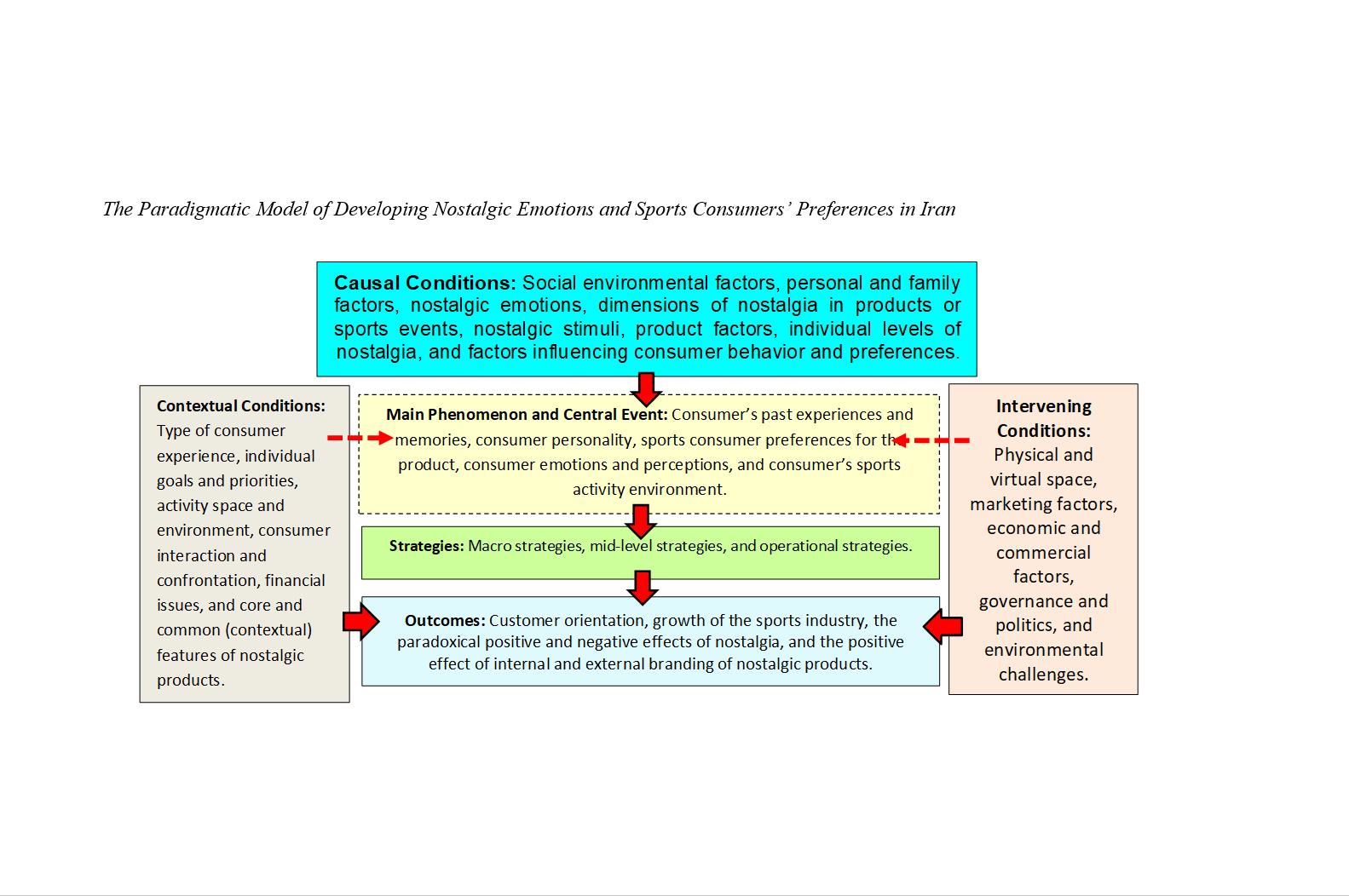Designing a Paradigmatic Model of Nostalgic Emotions and Preferences of Sports Consumers with a Grounded Theory Approach
Keywords:
Experiential marketing, sports marketing, nostalgic emotions, consumer preferences, sports consumersAbstract
Objective: The aim of this research was to design a model of nostalgic emotions and preferences of sports consumers using the grounded theory approach.
Methodology: This research is qualitative in nature and applied-developmental in its aim. The participants in the study included academic experts in the field of sports marketing management, managers and executive marketers of sports organizations, and 22 relevant scientific articles, selected for interviews through theoretical sampling. Data analysis was conducted over more than three rounds of interviews until reaching theoretical saturation and consensus on identifying constructs, categories, concepts, and indicators within six constructs: causal conditions, the central and core phenomenon, strategies, contextual and intervening conditions, and outcomes, following the systematic model of Strauss and Corbin.
Findings: At the open coding stage, 180 indicators (initial concepts) were identified. In axial coding, considering the semantic proximity of the identified concepts, 160 secondary concepts and 31 categories were classified into four main axes (drivers, barriers, stimulants, and requirements) through selective coding, within the six constructs of the Strauss and Corbin paradigmatic model.
Conclusion: The results of the study can enhance the awareness of sports marketing managers regarding the optimal development of nostalgic dimensions of sports products and the preferences of sports consumers.
Downloads

Downloads
Additional Files
Published
Submitted
Revised
Accepted
Issue
Section
License

This work is licensed under a Creative Commons Attribution-NonCommercial 4.0 International License.















